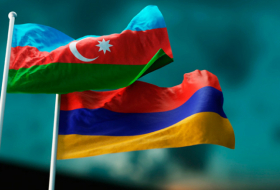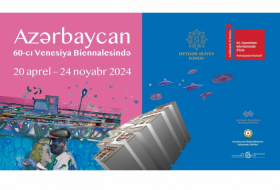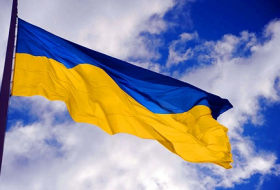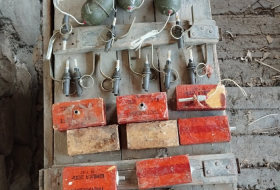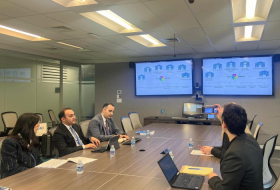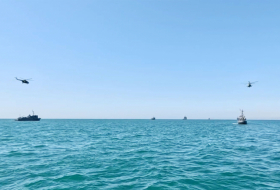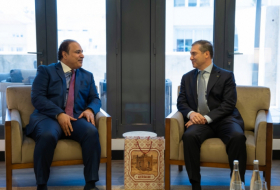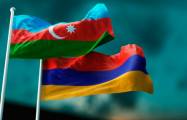The international criminal responsibility of the perpetrators of the Khojaly Genocide
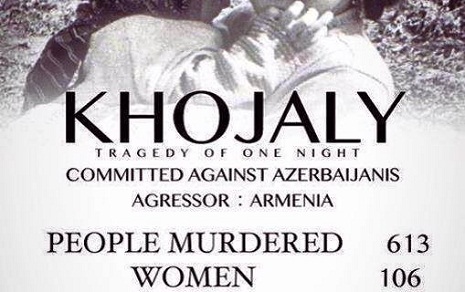
Aggression and crimes against humanity committed by the Nazi regime during the Second World War, the terrible history of the Holocaust and concentration camps, deportations and bombing, in general – massive and flagrant violations of human rights clearly demonstrated the shortcomings and tragic failures of the international community to respond these crimes timely and appropriately.
In response to the horrors of Nazism the United Nations Organization (UNO, UN) was founded in 1945 upon the initiative of the victorious powers of the Second World War. The main objectives of the UN, along with maintaining international peace and security, are to achieve international cooperation, development and human rights, as laid down in article 1 of the UN Charter.
Following this global significant event in order to bring to the justice the individuals who committed the most serious international crimes during the Second World War the Nuremberg and Tokyo international military tribunals were established. It must be noted that this is the first practice in the world history when individuals – Nazi war criminals and the Japanese militarists, were brought to international criminal responsibility.
The jurisdiction of the tribunals included crimes against peace, war crimes and crimes against humanity. Special attention deserves the fact that the official position of defendants was neither considered as a ground for exemption from responsibility or mitigating punishment nor released from liability the fact that the defendant acted according to order of the government or order of the commanders.
These standards have been further developed and consolidated in practice of ad hoc courts established for the purpose to bring individuals to the international criminal responsibility. So, in the mid of 1990th in order to bring individuals to criminal liability the International Criminal Tribunal for the prosecution of persons responsible for serious violations of international humanitarian law committed in the territory of the former Yugoslavia and the International Criminal Tribunal for the prosecution of persons responsible for genocide and other serious violations of international humanitarian law committed in the territory of Rwanda and Rwandan citizens responsible for genocide and other international crimes, committed in the territory of neighboring states were established by the UN Security Council.
The fact that in order to justify the decision about creating this international courts the UN Security Council referred to the Chapter VII of the Charter of the United Nations, dedicated to the action with respect to threats to the peace, breaches of the peace, and acts of aggression was very remarkable.
Thus, the international community, acting through the UN, particularly through the Security Council, designed to maintain international peace and security, 3 authorized (and, as shown by the above precedents, quite effective) to respond to international crimes, involving the responsibility of the perpetrators of international crimes.
It turns out that the UN Security Council conducts a "differentiation" in the choice of questions "greatest" and "least" important. Ilham Aliyev, the President of the Republic of Azerbaijan in his numerous speeches for the international audience has pointed out that while the famous UN resolutions on NagornKarabakh conflict have not been implemented for twenty years, the other resolutions of this organization are implemented in just few hours.
The logical consequence of this indifferent attitude of the international community to the conflict is the fact of impunity Armenian officials who
committed the massacres of Azerbaijani population of Nagorno-Karabakh, violating their natural and guaranteed rights by the aforementioned catalog of international treaties the fundamental right to life.
The 23rd anniversary of the Khojaly genocide where 613 civilians were killed, including 63 children, 106 women and 70 elderly people is approaching. And again and again, wondering when, finally, this unprecedented in its cruelty international crime in the history of modern Azerbaijan will be given full political and legal assessment by the international community, when the perpetrators of these brutal
acts will be prosecuted and incur the appropriate penalty?
It must be emphasized that at the time when the crime was committed in Khojaly Azerbaijan had recently regained its independence living in the state of political chaos, hadn`t developed and organized patterns of diplomatic and informational presence in the world.
While the Armenian side due to its financial wealth and influential diaspora and with the support of world powers were able to "get away" from the international responsibility and public condemnation. Moreover, the immediate organizers and perpetrators of the Khojaly genocide Robert Kocharian, Serzh Sargsyan, Seyran Ohanyan and others, without judicial sentence and the corresponding penalties, 4 held the positions of presidents and ministers, while not denying their involvement in the crime and appreciating it as "the heroism of the Armenian people".
Today Azerbaijan is a modern, successfully developing, democratic, tolerant state with the highest international authority, the growing foreign policy capabilities and influence in the region.
The chances of our country to be heard in the world incomparably increased. It is enough to mention the fact that parliaments of dozen countries have recognized massacre in Khojaly as an international crime. The initiated by the Vice-President of the Heydar Aliyev Foundation Leyla Aliyeva campaign "Justice for Khojaly", through which the objective information about this tragedy is channeled to the world plays a huge role in this process.
Thus, a strong economic foundation, systematic, diplomatic work, increased international image and public information activities of our country on a global scale are not that other, as finally formed, and a solid foundation to appeal to international bodies with the initiative of establishing the international tribunal.
Note that the Military Prosecutor`s office of the Republic of Azerbaijan collected extensive material on the massacres in Khojaly, which can be represented in the UN Security Council for the establishment of the Khojaly Tribunal. The other question is that whether the international community will express appropriate interest and political will from which the final outcome of this process will depend on.








